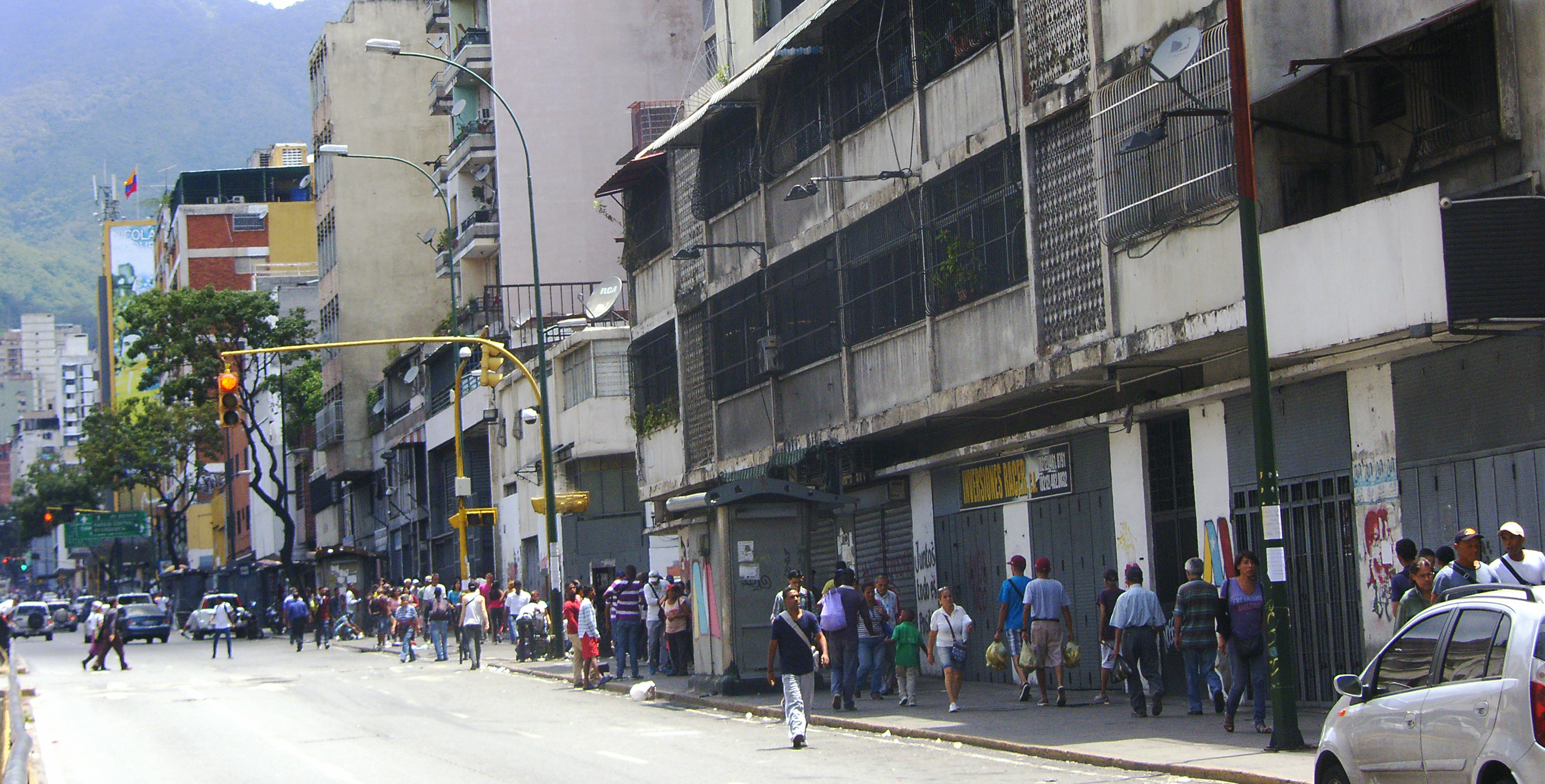Panicked Citizens Buy Whatever They Can Find After Maduro’s Paquetazo
Caraqueños were nervous because of what would happen on Monday. What Nicolás Maduro said during a mandatory broadcast on Friday was just the panic cherry on top of the fear flavored ice cream.


Photo: José Díaz
As soon as Nicolás Maduro’s broadcast ended on Friday, August 17, people drove to the pharmacies and supermarkets that were still open. They filled their shopping carts with non-perishable food, personal hygiene products (brands didn’t matter), cookies, ice cream, soda, pet food, medicine and even makeup.
What was seen that night didn’t end after the shops emptied and closed for the day.
On Saturday, August 18, people continued in a panic and uncertainty that wasn’t just caused by the reconversión monetaria, the limits on bank transactions or the increase on the price of gas; it was the announcements by president Maduro, which included an increase in minimum wage by 5,900%.
“I never thought minimum wage would go up like that,” says Teresa Barreto, a retired teacher. “This is crazy. The level of angst is high, I didn’t sleep, I’m worried about my grandchildren. They can’t go to school in an economy that surpasses any inflation percentage.”
“I know nobody should be suprised by the regime’s inefficiency, but what happened yesterday night was just too much.”
And Mrs. Barreto wasn’t alone in her vigil: Marieta Betancourt told me, as she loaded her shopping cart: “Look at him, my husband didn’t sleep. He has a company and these announcements by Maduro will finish his business. He crunched numbers all night. His two employees will now earn more than his total revenue.”
Photos: José Díaz
Lines in supermarkets and department stores didn’t take long to appear. Everyone who could, bought clothes, shoes and household products.
“I’m taking a dozen white t-shirts,” said Miriam Palencia, waiting for the point of sale to work again. “I’ll pay with my credit card. After this, it’ll be impossible to buy clothes for my son.”
When I asked if she was shopping to be protected from the reconversión, she admitted that she just rushed to the shops. “I find this devastating, the worst Black Friday in our history. We’re even going to pay more taxes, he lost his mind. Maduro hates us.”
Comments, overall, weren’t encouraging for the government, since people spent up to three hours in line. “What they did was disguise the raises and devaluation”; “this is to further subdue the people”; “what he did can’t be referred to as ‘economic measures’”; “it’s not dollarization, it’s acknowledging the black market dollar”; “nobody will replenish merchandise”; “when products appear, they’ll have prices we won’t pay.”
And cashiers had to patiently face the collapse of points of sales.
“Mercantil cards aren’t working,” one told me in a supermarket at Fuerzas Armadas Av, and another in Los Palos Grandes agreed: “Provincial cards aren’t working.”
Not a regular Saturday
Caracas saw unusual movement from very early. Many, due to poor public transport, walked long distances to reach commercial areas like El Cementerio, downtown Caracas, Quinta Crespo, Sabana Grande and Chacao.
They found a devastating landscape, that intensified their concern. Entire blocks of stores were closed (mainly furniture, shoes, hardware and even candy shops). Some areas, by the way, had no electricity.
 Photo: José Díaz
Photo: José Díaz
Carlos Díaz, an employee outside a shop, says his bosses told him they wouldn’t open until Tuesday, August 21:
“They told us they’re crunching numbers for the reconversión, but I think this’ll go beyond that. They asked for patience and to come back on Tuesday.”
Edison Rivas, another salesman, says he got up at 4:00 a.m., since his bosses asked him to come in early to re-adjust prices:
“All prices are changing, this was unstoppable.”
They will be fired
Commercial activity in Caracas was already low. Shops close at 4:00 in the afternoon, with no merchandise to sell.
Those who survive, change their core business; if they used to sell fabric, now they sell food, for example. “Even that isn’t enough to stay afloat, suppliers won’t give any credit and you work at a loss” says Abraham Araque, a merchant. “I’ll have to adjust my employees’ salaries. I did it in December, 2017, I had seven employees; now I have three. How do I pay their social benefits with a 180 million bolivars minimum wage?”
The panic didn’t give way to calm, because on August 19, there won’t be a banking system that can deal with transactions.
On August 19, there won’t be a banking system that can deal with transactions.
Shops, like bakeries in downtown Caracas, plan on working until noon if points of sales work. Word is, banking platforms will be disabled in the afternoon because of the adjustments of the reconversión, and it may last until Monday afternoon.
“I’m sad,” said Luis Camacho, as he left a supermarket, “I’m anxious. I’ve never been hungry like other Venezuelans, but I can’t provide for my family anymore. Today, I’m buying meat, rice, pasta and sugar, but that won’t last long. The worst will come after August 20.”
On Saturday, we saw sheer desperation for the few hours the bolivar fuerte still had on this Earth. Picture tomorrow, with gas, the rush of a new currency and the chaos of today’s sins.
Caracas Chronicles is 100% reader-supported.
We’ve been able to hang on for 22 years in one of the craziest media landscapes in the world. We’ve seen different media outlets in Venezuela (and abroad) closing shop, something we’re looking to avoid at all costs. Your collaboration goes a long way in helping us weather the storm.
Donate




